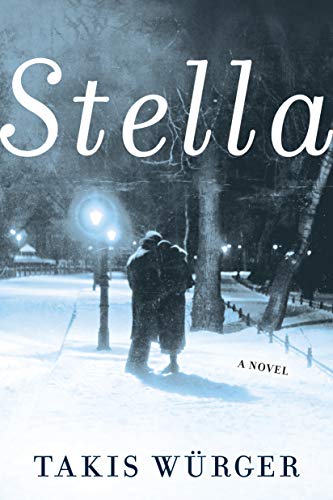Stella
How do people rationalize maintaining relationships with others who hold abhorrent views? This question makes Stella especially relevant – because its author is German, and the book explores the complexities of relational life in Berlin during World War II.
In the city, Friedrich, who is young, naïve, Swiss, and rich, meets Stella, a quixotic, impoverished nightclub singer and Latin teacher who captures his heart. He also befriends a sophisticated German man, Tristan, who teaches him to fence and who has access to the finest foods and wines amid strict wartime rationing.
Friedrich feels disappointed to discover that both Stella and Tristan are anti-Semites who support Adolf Hitler. But when he learns that Stella is, herself, a Jew, he is astonished and perplexed – but Stella is a survivor who will do what it takes to save herself and her family.
The result is a complex and nuanced portrayal of characters who spring to life in all their messy contradictions.
Würger’s writing, translated into English by Liesl Schillinger, is straightforward and spare, as deceptively simple as the complex questions it tackles: How did Germans allow the atrocities of the Third Reich to occur? Why didn’t they rise up? How did those who opposed government-sanctioned anti-Semitic attitudes and actions coexist with people who supported Hitler? And how did they sleep at night?
When Friedrich asks his father why he remained married to his Nazi mother despite her weaknesses, the father retorts that he loves her even for her weaknesses. “Every single one,” he declares.










